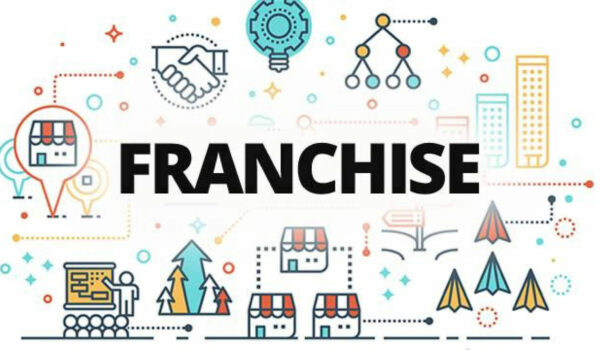While deciding on a franchise might seem perplexing, reading the documents and understanding the concepts, laws, and terminologies used, can be absolutely strenuous. However daunting the process might be, the result is lucrative. For a business enthusiast, either starting a business from scratch or taking up a franchise, any of these situations demands updated knowledge in regard to the business. Franchise jargons are simple when one understands the concept and knowing them makes it easier to navigate through the franchises while selecting one.
Why would one need to know Franchise Jargons?
- They will invest money in the parent business as a franchisee or a franchisor. And no one invests any amount of money without judging the returns on the investment. To understand how the business runs, what are the start-up and ongoing costs, overheads, and when will the venture break even, and bag profits, one needs to have basic know-how to understand and operate a business.
- The jargons take up most of the paperwork. Running a business/franchise comes in terms with loads of paperwork and proper insight into the technicalities.
- Understanding the type of relationship between the franchisee and franchisor is dependent on the documentation provided during the deal.
- These franchise terms grant both parties a safety net.
Here are a few frequently used terms used in the Franchise Industry, that make the franchise jargon simple and help boost your franchise know-how.
- Agreement- The franchise agreement offers the franchisor the right to exercise control and obligation to assist the franchisee in setting up the business by leveraging its established brand. Typically, the franchisor guides the franchisee in maintaining the brand standards.
- Breakeven- The point at which a franchise (or any business) takes in enough revenue to balance the investment costs. In other words, the point where it reaches a net profit and net loss of $0.
- Business Plan– A business plan is a document that contains the operational and financial plan of a business, and details how its objectives will be achieved. It serves as a road map for the business and can be used when pitching investors or financial institutions for debt or equity financing.
- Company-Owned location- Also referred to as corporate locations or units, a company-owned location is owned and operated by the corporate entity of the brand, as opposed to by a franchisee.
- Conversion- The “rebranding” and modification of an existing business into a franchise unit of a different company. Some franchisors prefer conversions to new businesses as a way to reduce costs and ensure the franchise owner has the appropriate skills to run the business.
- Franchise Disclosure Document– A standardized document required in the U.S. for all companies offering a franchise opportunity. The FDD is a lengthy document that contains detailed information on the franchise, including a description of the business model, estimated costs of starting a franchise, names of officers and franchise owners, and other information.
- Franchise fee- A component of the initial investment in a franchise business that allows the franchisee to use the franchise brand’s name and likeness. This is a one-time fee.
- Franchise expo- Event in which prospective franchisees can meet with a number of franchise companies in person to discuss the opportunities they offer. The largest expos in the U.S. take place in New York City, Anaheim, and Houston each year, and are hosted by MFV Expositions.
- Franchisee- The name given to a person or corporate entity that owns a franchise business.
- Franchisor- The name given to a company that offers a franchise opportunity as a means of growth. Sometimes referred to as “franchiser.”
- Franchise development- The “sales” process of adding new franchisees to a franchise company. Staff with “development” in their title are typically charged with bringing new franchisees on board; however, the most successful franchise brands generally treat this process less as a sale and more as a job interview. They should be looking for the right fit for them, and you as a potential franchisee.
- Franchise Tax- A franchise tax is a government levy (tax) charged by some US states to certain business organizations such as corporations and partnerships with a nexus in the state. A franchise tax is not based on income. Rather, the typical franchise tax calculation is based on the net worth of or capital held by the entity. The franchise tax effectively charges corporations for the privilege of doing business in the state.
- Initial Investment- The estimated total investment a franchisee will need to get the franchise business up and running. Usually represented as a range showing a low-end and high-end, the initial investment can be found in Item 7 of a franchisor’s Franchise Disclosure Document. Cost elements will include the franchisee fee, equipment, property lease, and/or other ramp-up costs.
- International Franchise Association (IFA): The largest and best-known organization representing the franchising industry. The IFA works to provide resources to franchisors, franchisees, and suppliers to franchise companies and is active in the political space for the franchise and small business interests.
- Net worth, liquid capital- Liquid net worth is the difference between a person’s cash and cash equivalents and their total liabilities. A positive liquid net worth means a person has more liquid assets than liabilities, while a negative liquid net worth means the person has more liabilities than liquid assets.
- Overhead and ongoing costs- Overhead refers to the ongoing costs to operate a business but excludes the direct costs associated with creating a product or service. Overhead costs can be fixed, variable, or a hybrid of both. There exist different categories of overhead, such as administrative overhead, which includes costs related to managing a business.
- Royalty fee- The sum of money, usually a percentage of gross sales, paid by the franchisee to the franchisor on a regular (usually monthly) basis as part of the franchise agreement. Typical royalty fees are under 10% of gross sales, but some companies may have higher fees or a different type of fee structure depending on the services/support offered by the franchisor.
- Section 19–
Termination of a Franchise. (a) It shall be a violation of this Act for a franchisor to terminate a franchise of a franchised business located in this State prior to the expiration of its term except for “good cause” as provided in subsection (b) or (c) of this Section.
(b) “Good cause” shall include, but not be limited to, the failure of the franchisee to comply with any lawful provisions of the franchise or other agreement and to cure such default after being given notice thereof and a reasonable opportunity to cure such default, which in no event need be more than 30 days.
(c) “Good cause” shall include, but without the requirement of notice and an opportunity to cure, situations in which the franchisee:
(1) makes an assignment for the benefit of creditors or a similar disposition of the assets of the franchise business;
(2) voluntarily abandons the franchise business;
(3) is convicted of a felony or other crime which substantially impairs the goodwill associated with the franchisor’s trademark, service mark, trade name, or commercial symbol; or
(4) repeatedly fails to comply with the lawful provisions of the franchise or other agreements.
- Startup Cost- The total initial (and not perpetual) costs that go into starting a franchise business. This can include the franchisee fee, construction fees, equipment purchases, legal fees, and various other costs.
- Turnover- Refers to a franchise agreement that has been terminated, not renewed, transferred, or the franchise business goes out of business.
Liked what you read? Follow us on Linkedin.
Want your franchise news to be covered? Send your Press Release.




